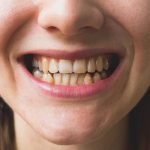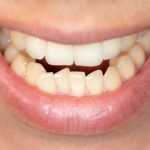Say Goodbye to Teeth Stains: Effective Ways to Get Rid of White Stains on Your Teeth

A beautiful smile is a powerful tool, and it can make a lasting impression on anyone you meet. However, when your teeth are plagued with unsightly white stains, it can be challenging to feel confident when flashing your pearly whites. White stains on teeth are a common dental issue that affects people of all ages and can be caused by various factors such as poor oral hygiene, frequent consumption of acidic or sugary foods, and even genetics. Fortunately, there are several effective ways to get rid of white stains on your teeth and restore your smile’s natural brilliance. If you’re dealing with white stains on your teeth, it’s essential to understand the underlying cause before seeking treatment. White stains can be caused by various factors, including fluorosis, enamel hypoplasia, and poor oral hygiene. Fluorosis occurs when too much fluoride is ingested during the development of teeth, causing white spots to appear. Enamel hypoplasia, on the other hand, is a condition that occurs during tooth development when the enamel does not grow correctly, leading to white or yellowish spots on the teeth. Poor oral hygiene can also cause white stains on teeth, as plaque buildup can lead to the erosion of the tooth’s enamel, causing white spots to appear. Whatever the cause, there are numerous ways to get rid of white spots on your teeth and achieve a brighter, healthier smile.
Teeth stains are discolorations or white spots on the surface of teeth that occur due to various reasons. They can be caused by poor oral hygiene, consumption of dark-colored foods and drinks such as coffee, tea, red wine and soda, smoking, aging, and certain medications. The stains can be either extrinsic, which occur on the surface of the teeth, or intrinsic, which occur inside the tooth. Extrinsic stains are easier to remove, while intrinsic stains may require professional treatment. It is important to maintain good oral hygiene, limit consumption of staining substances, and visit a dentist regularly to prevent and treat teeth stains.
Causes of White Stains on Teeth
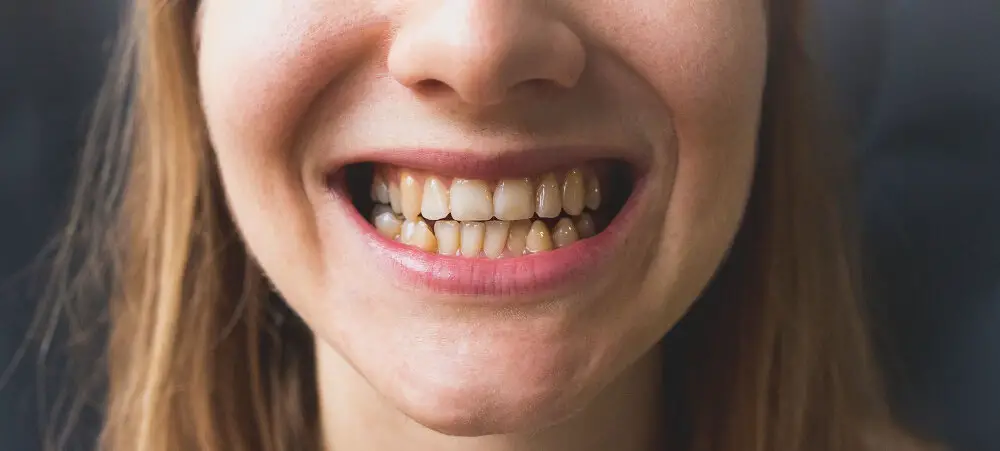
White stains on teeth can be caused by a variety of factors. One of the most common causes is excessive fluoride intake. Fluoride is essential for strong teeth, but too much of it can cause fluorosis, a condition that can lead to white spots on the teeth. This usually occurs during childhood when children are still developing their teeth. Other causes of white stains on teeth include poor dental hygiene, acidic foods and drinks, and dental appliances such as braces. Poor dental hygiene can lead to the build-up of plaque, which can cause white spots on the teeth. Acidic foods and drinks can also weaken the enamel, making it more prone to staining. Another cause of white stains on teeth is enamel hypoplasia. This is a condition where the enamel on the teeth is weak and prone to staining. Enamel hypoplasia can be caused by a variety of factors, including genetic factors, poor nutrition, and certain medical conditions. In some cases, white stains on teeth can also be caused by medications such as antibiotics. If you notice white stains on your teeth, it is important to see a dentist who can determine the underlying cause and recommend appropriate treatment. Effective ways to get rid of white stains on your teeth include regular brushing and flossing, avoiding acidic foods and drinks, and using whitening toothpaste or undergoing professional teeth whitening treatments.
White stains on teeth can be caused by various factors, including excessive fluoride intake, poor oral hygiene, and certain medications. Fluoride, while beneficial for teeth in small doses, can cause white spots if consumed in excess, especially during early childhood development. Poor oral hygiene, such as infrequent brushing or flossing, can lead to the buildup of plaque and bacteria on teeth, causing white stains. Certain medications, such as antibiotics, can also cause white spots on teeth, particularly in children whose teeth are still developing. It’s important to identify the cause of white stains on teeth to find an effective solution for removing or preventing them.
Prevention of White Stains on Teeth
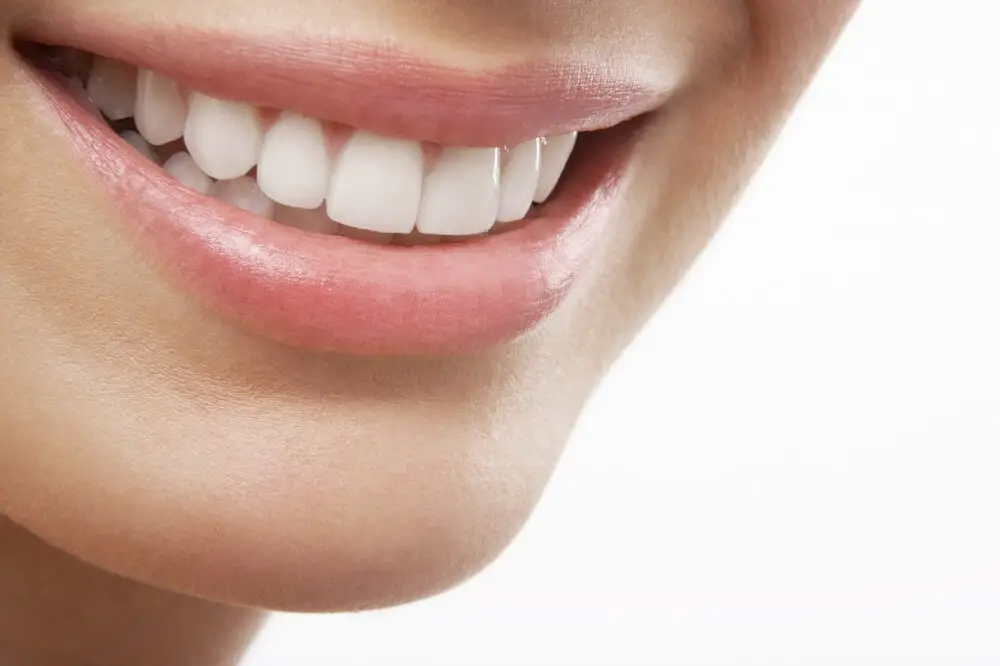
White stains on teeth are a common problem for many people. These stains can be caused by a variety of factors, such as poor oral hygiene, certain medications, and certain foods and drinks. Fortunately, there are several ways to prevent white stains on teeth. One of the most important steps is to practice good oral hygiene. This includes brushing your teeth twice a day, flossing daily, and using mouthwash regularly. It’s also important to visit your dentist for regular cleanings and checkups. Another way to prevent white stains on teeth is to avoid certain foods and drinks. This includes sugary and acidic foods and drinks, such as soda, candy, and citrus fruits. These types of foods and drinks can cause enamel erosion, which can lead to white stains on teeth. It’s also important to limit your intake of coffee, tea, and red wine, as these beverages can also cause stains on teeth. By following these simple steps, you can help prevent white stains on teeth and keep your smile looking healthy and bright.
White stains on teeth can be unsightly and can make you feel self-conscious about your smile. Fortunately, there are several ways to prevent these stains from forming. Firstly, it’s important to maintain good oral hygiene by brushing your teeth twice a day and flossing regularly. This will help to remove any surface stains and prevent the build-up of plaque. Additionally, it’s important to avoid certain foods and drinks that can cause staining, such as coffee, tea, red wine, and soda. If you do consume these items, make sure to rinse your mouth with water afterwards. Finally, regular visits to the dentist are crucial for maintaining oral health and preventing stains. Your dentist can provide professional cleaning, identify any potential issues, and offer advice on how to keep your teeth healthy and white. By following these tips, you can say goodbye to teeth stains and enjoy a brighter, more confident smile.
Home Remedies for Removing White Stains on Teeth

White stains on teeth can be caused by a multitude of factors, including poor oral hygiene, excessive fluoride intake, and certain medications. Luckily, there are several home remedies that can help remove these unsightly stains and leave your teeth looking brighter and healthier. One effective method is oil pulling, which involves swishing a tablespoon of coconut or sesame oil in your mouth for 15-20 minutes before spitting it out. This process can help remove bacteria and toxins from your mouth, which can lead to whiter teeth over time. Another great home remedy for removing white stains on teeth is baking soda. Simply mix a small amount of baking soda with water to create a paste, and then brush your teeth with the mixture for two minutes. Baking soda has natural whitening properties and can help remove surface stains on your teeth. Just be sure not to use this method too often, as overuse of baking soda can damage your tooth enamel. By incorporating these and other home remedies into your oral hygiene routine, you can say goodbye to white stains on your teeth and enjoy a brighter, healthier smile.
White stains on teeth can be quite unsightly and affect your confidence when you smile. Fortunately, there are a number of effective home remedies that can help remove these stains. One popular remedy is baking soda, which helps to neutralize acids in the mouth and remove surface stains. Another option is apple cider vinegar, which has natural whitening properties and can break down stubborn stains. Finally, activated charcoal is known to absorb toxins and stains from the teeth, leaving them looking brighter and whiter. However, it is important to note that these remedies should be used in moderation and with caution to avoid damaging the enamel of the teeth.
Professional Treatments for Removing White Stains on Teeth
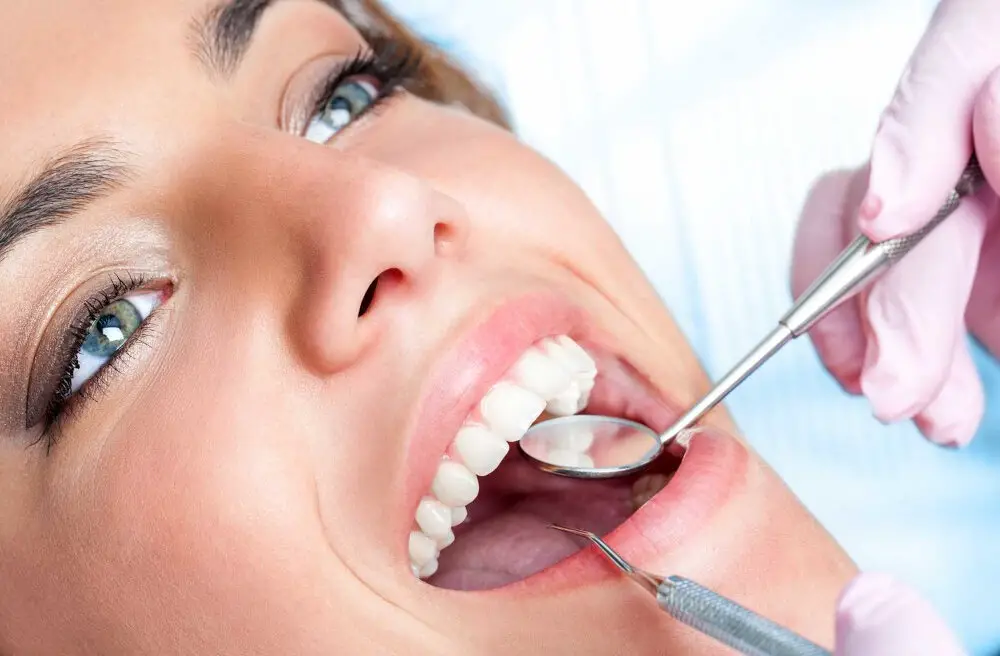
Professional treatments for removing white stains on teeth are the most effective and quickest way to achieve a brighter, more radiant smile. These treatments are typically performed by a dentist or dental hygienist and can involve a variety of different techniques and tools. One of the most common professional treatments for removing white stains on teeth is teeth whitening. This involves the use of a special whitening gel that is applied to the teeth and activated with a special light. This process can help to remove stains and discoloration from the surface of the teeth, leaving them looking whiter and brighter. Another professional treatment for removing white stains on teeth is dental bonding. This involves the use of a tooth-colored resin that is applied to the surface of the teeth and then hardened with a special light. Dental bonding can be used to cover up white spots and other types of discoloration, leaving the teeth looking smoother and more even in color. Other professional treatments for removing white stains on teeth may include porcelain veneers, dental crowns, or even orthodontic treatment to correct issues with tooth alignment. Whatever the treatment, it is important to work with a qualified dental professional to ensure that you achieve the best possible results.
There are several professional treatments available to remove white stains on teeth, depending on the severity and cause of the staining. Teeth whitening is a commonly used treatment that involves the use of bleaching agents to remove surface stains and discoloration caused by food, drinks, or smoking. Dental bonding is another option that involves applying a tooth-colored resin to the affected area, which is then hardened with a special light. This treatment is ideal for small, isolated stains. Veneers, on the other hand, are thin shells made of porcelain or composite material that are placed over the front surface of the teeth to cover up stains, chips, and other imperfections. This treatment is more invasive and requires the removal of a small amount of enamel, but it can provide long-lasting results for more severe cases of staining.
In summary, there are various ways to eliminate white stains on teeth, such as practicing good oral hygiene habits, limiting the intake of dark-colored beverages and foods, and undergoing professional teeth whitening treatments. It is important to take action to improve oral health not only for aesthetic purposes but also for overall health benefits. Neglecting oral health can lead to gum disease, tooth decay, and other oral health problems that can affect one’s quality of life. By implementing simple lifestyle changes and seeking professional dental care, anyone can achieve a brighter and healthier smile. So, don’t hesitate to take the first step towards better oral health today!
Conclusion
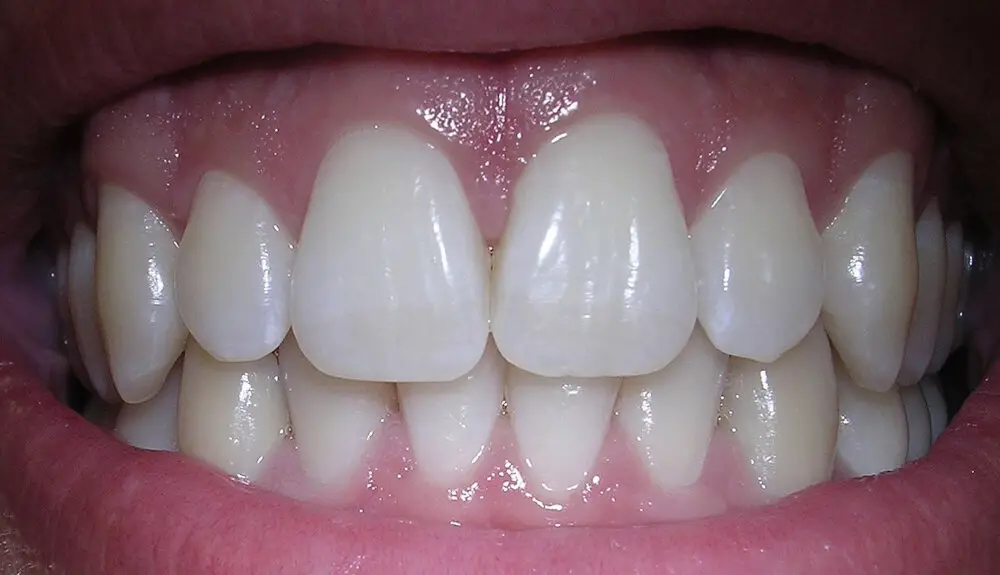
In conclusion, having white stains on your teeth can be a frustrating and embarrassing experience. However, there are several effective ways to get rid of these stains and achieve a brighter, healthier smile. From practicing good oral hygiene habits to seeking professional dental treatments, there are options available for everyone. By incorporating these methods into your dental care routine, you can say goodbye to teeth stains and enjoy a confident, radiant smile for years to come. Remember, a healthy smile is not only aesthetically pleasing but also an important indicator of overall well-being. So take the necessary steps to maintain your oral health and keep your teeth looking their best.
